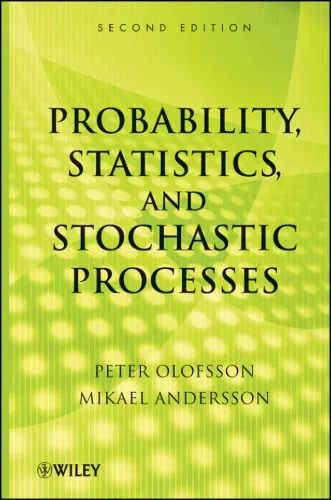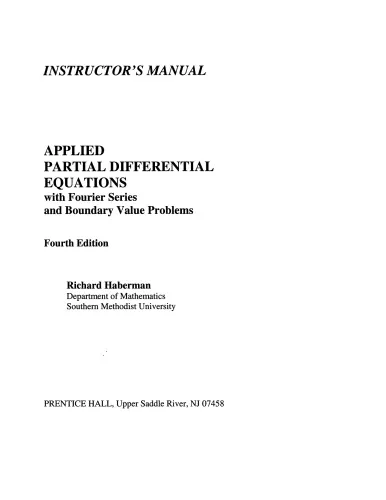Catastrophes in nature and society: mathematical modeling of complex systems
4.4
Reviews from our users

You Can Ask your questions from this book's AI after Login
Each download or ask from book AI costs 2 points. To earn more free points, please visit the Points Guide Page and complete some valuable actions.Related Refrences:
Welcome to a comprehensive exploration into the intricate world of catastrophic events and their implications in both natural and societal contexts. "Catastrophes in Nature and Society: Mathematical Modeling of Complex Systems" is an enlightening journey through the mathematical frameworks that describe and predict phenomena ranging from natural disasters to economic collapses. Through a deep understanding of complex systems, this book offers both a theoretical and practical guide to analyzing, interpreting, and potentially mitigating disasters.
Detailed Summary of the Book
The book delves into the multifaceted dimensions of catastrophes by first establishing a solid foundation in the mathematical modeling of complex systems. The initial chapters introduce key concepts in chaos theory, bifurcation, and non-linear dynamics, providing readers with the necessary tools to understand how small changes can lead to significant impacts in interconnected systems.
As the reader progresses, they encounter various case studies that illustrate the application of mathematical models to real-world scenarios. From the unpredictable patterns of weather systems to the fragile stability of financial markets, the book exemplifies how these models can be used to forecast potential outcomes. Each case study is meticulously detailed to highlight how mathematical principles apply to diverse fields and the limitations of these models.
In subsequent sections, the book discusses the philosophical and ethical implications of predicting catastrophes. It questions the human capacity to control nature and society, while also examining the responsibilities that come with such capabilities. The concluding chapters encapsulate the ongoing challenges in addressing subsystem interactions and the potential for systemic failures.
Key Takeaways
- Understanding the fundamentals of complex system dynamics is crucial for accurate disaster prediction and management.
- Mathematical models can be powerful tools, but they are subject to limitations influenced by incomplete data and unforeseen variables.
- Interdisciplinary approaches enrich the potential for innovative solutions in dealing with catastrophes.
- Ethical considerations must guide the deployment of predictive technologies to prevent misuse or harm.
Famous Quotes from the Book
"Mathematics is not only the language of the universe but the interpreter of its chaos."
"In understanding catastrophes, we find the delicate balance between nature’s fury and human frailty."
Why This Book Matters
"Catastrophes in Nature and Society" stands as a pivotal resource for professionals, scholars, and policymakers alike. As global challenges intensify with climate change and technological evolution, the ability to anticipate and mitigate large-scale disasters becomes increasingly critical. This book not only furnishes readers with the analytical tools needed to navigate future uncertainties but also fosters a deeper understanding of the interconnectedness of global systems.
Furthermore, the book emphasizes the importance of collaboration across disciplines, encouraging a holistic view that incorporates environmental, economic, and social dimensions. Its insights are invaluable for anyone involved in risk management, disaster prevention, and strategic planning, making it a must-read in today’s complex and ever-changing world.
Free Direct Download
You Can Download this book after Login
Accessing books through legal platforms and public libraries not only supports the rights of authors and publishers but also contributes to the sustainability of reading culture. Before downloading, please take a moment to consider these options.
Find this book on other platforms:
WorldCat helps you find books in libraries worldwide.
See ratings, reviews, and discussions on Goodreads.
Find and buy rare or used books on AbeBooks.
1444
بازدید4.4
امتیاز0
نظر98%
رضایتReviews:
4.4
Based on 0 users review
Questions & Answers
Ask questions about this book or help others by answering
No questions yet. Be the first to ask!













![Elements of Information Theory, Second Edition [2nd Ed] (Complete Instructor Solution Manual, Solutions) (Latest as of Aug 2007)](https://s3.refhub.ir/images/thumb/Elements_of_Information_Theory__Second_Editio_17599.webp)























